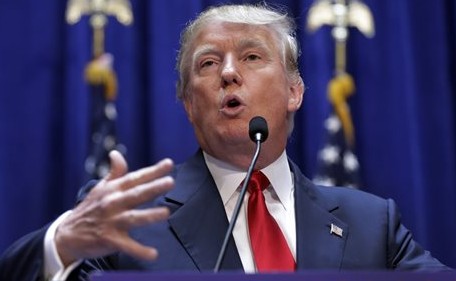
Donald Trump. AP
Finesse was not an attribute of President Donald Trump’s visit to Europe last May for the Nato and G-7 summits. America’s allies were told off about trade surpluses and not pulling their weight in collective defence. Even his body language became a talking point when a public handshake with the French President became a test of physical strength, and the Prime Minister of Montenegro appeared to be elbowed out of the way at a gathering.
The aftermath of the tour clearly demoralized a number of European leaders, as captured by German Chancellor Angela Merkel’s comment to fellow Germans that Europe could no longer rely on longstanding transatlantic ties.
The hope is that Mr. Trump’s visit to Asia from Nov. 3 to 14 will not undermine decades-old partnerships, but rather live up to the White House’s declaration that the tour is to demonstrate US commitment to alliances, and its leadership in “promoting a free and open Indo Pacific region”. As proof of Mr. Trump’s interest in the region, American officials cited the 42 calls he has made to Indo Pacific counterparts and the 10 leaders from the region he has hosted since January.
Form counts, of course, but substance will matter more when Mr. Trump stops in Japan, South Korea, China, Vietnam and the Philippines. At bilateral discussions and also at the Apec summit in Da Nang and Asean events in Manila, a key concern will be the US response to North Korean provocations. Mr Trump’s tough talk, about the “fire and fury” that the North will face if it goes too far, might reassure the Japanese and South Koreans that their defence pacts with the Americans will be upheld strongly.
But that will grate on China, which has its own treaty obligations to defend North Korea against unprovoked aggression. The Chinese preference is for greater restraint on the part of all, in order to lower tensions in the region. Hence the need for Mr Trump to show finesse in his public stance and private discussions with Asian leaders.
Messaging will be critical during his Asian trip not just about dominant security concerns but also trade issues, especially in the light of the economic nationalism favoured by Mr Trump.
There is no doubt that in dragging the US out of the Trans-Pacific Partnership, he had seriously damaged US credibility in the region. The historical backdrop to this is the sense of insecurity among Asian allies which flares up periodically, every time a new administration takes over in Washington. This time the angst is acute because of heightened threats and China’s geostrategic goals. Thus, the region will be weighing carefully Mr Trump’s key moves and statements during this trip.